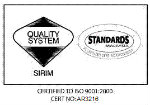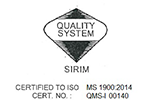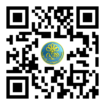Lessons in history on governance
In this millenarian commemoration of Nizam al-Mulk (b. 1018), it is apt to quote his work Siyasat-nameh, which states that a leader “shall bring to pass that which concerns the advance of civilisation (‘umran), such as constructing underground channels, digging main canals, building bridges across great waters, rehabilitating villages and farms, raising fortifications, building new towns, and erecting lofty buildings and magnificent dwellings; he shall have inns built on the highways, and educational institutions for those who seek knowledge; for which infrastructure the leader will be renowned forever; he will gather the fruit of his good works in the hereafter, and blessings will be showered upon him.”
A priority of undertaking extensive public works is one of the salient features of this classic oeuvre on leadership ethics, also known in its alternative title Siyar al-Muluk.
This book is referred to internationally, and translated into French (1893), Russian (1949), Turkish (1954), German (1960), English (1960) and Arabic (1987). Hubert Darke’s English translation The Book of Government has the following caption: “many of Nizam al-Mulk’s findings are as pertinent to government (and people) today as they were 900 years ago.”
The original Persian work was written in the year 1091 (39 chapters) and 1092 (11 chapters) intended as a Ruler’s primer, of Sultan Malik-shah, who governed for 20 years an Empire which stretched from India to Egypt.
The astute writer was Nizam al-Mulk Abu ‘Ali al-Hasan bin ‘Ali, who was assasinated in 1092 when he was 74 years old. The book mirrors his vast experience in civil, fiscal and military services; Nizam al-Mulk was Prime Minister and Commander in Chief of the Saljuq Empire for over 30 years. And for the next 60 years after his demise, members of his family—nine sons and four grandsons—held those strategic financial, public or armed forces offices.
Historians celebrated Nizam al-Mulk’s governance, who had administered Muslim lands with a far-reaching vision of rejuvenating inclusive Sunni polity, culture and intellectualism.
Nizam al-Mulk was fully conscious that it was not enough for a leader to have good morality. Besides honesty, a leader must possess competency, effectiveness, and efficiency towards achieving aims and objectives. Apart from undertaking extensive public works, Nizam al-Mulk’s success are prominent in the following three social aspects:
First, the founding of a series of universities via waqf or Islamic endowment system. Fully equipped with scholarship grant and student financial assistance, innumerable colleges were established in major cities of Iraq, Persia and Jazirah, the northern area between the Tigris and Euphrates. Systematic studies of philosophy, the sciences, theology and law were taught in those educational institutions, aimed at training a body of reliable, Sunni-oriented officials who would run the great empire and thus further the progress of intellectual and socio-political revival. Their ethos and teachings were the accommodable Ash‘ari kalam (school of theology) and Shafi‘i legal school.
His most celebrated university college was the Baghdad Nizamiyyah, founded in 1067. As one profuse in charity, he was much sought after as a patron of arts and sciences, of scholars and metaphysicians. Appointment of university vice-chancellors was based upon their excellence and influence in the world of knowledge; among them the most notable were Abu Ishaq al-Isfarayini (theologian, jurist and traditionist) and Abu Hamid al-Ghazzali (theologian, legal expert, philosopher, Sufi and religious renewer).
Second, the general abolition of taxes—called mukus—that were unjust or unsanctioned by Religion and societal well-being, starting from 1086. This reflected a good tradition that took place 300 years before, during the leadership of Caliph ‘Umar bin ‘Abdul ‘Aziz, who in 717 put an end to mukus, based on the statement of prophet Shu‘ayb in the Qur’an, phohibiting an encroachment of people’s cost of living: “… and do not deprive people of what is rightfully theirs, and do not act wickedly on earth by spreading corruption” (11:85;26:183;7:85-86). “What is rightfully theirs” refers to physical possessions as well as moral and social rights.
Qadi Abu Yusuf, who was the Chief Judge at the time of Abbasid Caliph Harun al-Rashid offered his analysis: before the time of Umayyad Caliph ‘Umar bin ‘Abdul ‘Aziz, the country was less prosperous because people found no reason to be productive, as higher gains invite higher, unjust tax of all sorts. However, when the just policy of ‘Umar bin ‘Abdul ‘Aziz was implemented, the people were filled with enthusiasm to be productive, as benefit of higher earnings returned to themselves. More interestingly, when productivity and earnings increased, the state’s revenue as a whole increased as well.
Thirdly, earnestness to make the country safe from brigandage, and to diminish people’s cost of living, as religious faith and practices were protected, knowledge and sciences were patronised, public property was distributed justly within the commonwealth, right of property was guaranteed, and fair tax was imposed in a proper manner. A decade after his initiatives were implemented, history books referred to “amazing security of the country and the low cost of living” (H. Bowen-C.E. Bosworth 1995).
Indeed, a truly renowned and blessed leader Nizam al-Mulk was.




